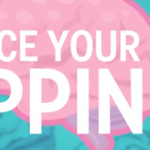HOW DO YOU REBALANCE YOUR WORKLOAD WITHOUT SEEMING LIKE YOU’RE DODGING RESPONSIBILITIES? EXPERTS OFFER THEIR ADVICE.
Maybe you have a coworker who always seems to get out of taking on his or her fair share of work, or your boss continues to flood your inbox with new projects when you’re already drowning. Chances are that you have felt the need to set boundaries at work at one point or another. But doing so while being a team player can be a tough line to walk.
“It’s really important when you’re working on a team and also with your boss that there is a feeling of trust and that you can have difficult conversations,” says Marcia Ruben, assistant professor and chair of the department of management at Golden Gate University’s Ageno School of Business in San Francisco. “There may be a feeling of resentment, of being taken advantage of. So it’s really important to pay attention to yourself and what you’re noticing.”
So, how do you rebalance your workload without seeming like you’re dodging responsibilities? Taking a strategic approach can help, Ruben says.
REFRAME THE PROBLEM
When you’re overwhelmed and someone is asking more of you, it’s natural to feel like someone is taking advantage of you. Instead, choose to look at it as a mark of trust in you and your ability to get things done or fulfill a need, Ruben says. When you change the narrative to be more positive, you can better work toward a resolution that’s good for everyone.
CONSIDER THE BIG PICTURE
It’s also a good idea to look at the situation in a broader context, says management psychologist Karissa Thacker, PhD, of Strategic Performance Solutions, a leadership and performance consultancy. Is the boundary-crossing a regular occurrence? Or is there something extraordinary going on?
For example, if the company is gearing up for an acquisition and everyone is under the gun, you might have to steel yourself for short-term discomfort and find solutions to deal with that. However, if you are regularly deluged and can’t find a way out, that requires a different approach.
FIND THE BEST FIT
Some people are afraid to say no—or anything close to it—and end up taking on jobs that aren’t the best fit for them, Thacker says. Before you take on a job that may add to your feeling of being overwhelmed, she recommends asking two things:
- Am I the best person to take this on?
- Who else can I enlist to partner and collaborate with on this?
Sometimes, work is assigned out of habit or for some other reason without really identifying who the best person is for the job, she says.
Ruben agrees that, among reasonable people, suggesting a job go to someone else whose skills are a better fit can actually work in your favor. Too many people are afraid they’ll get a bad reputation or even get fired for trying to reassign work, but it’s more likely that he or she will value your thinking if you’re truly making a better recommendation.
“Your boss can fire you. But, more, your boss wants strong, confident people who are looking out for the team,” she says.
MANAGE ISSUES UPFRONT
If you do take on that additional project, make sure you understand the resources you’ll have and the deadlines expected so your willingness to be a team player doesn’t backfire, Thacker says.
“Part of being authentic as a leader in an organization is to have the courage to manage your own work load,” she says. “I find with my clients that they can often do what the boss is asking but the timeline is unreasonable. Having the courage to say from the beginning that you need more time is key. Do not ask for an extension as the deadline approaches,” Thacker says.
ASK FOR SOLUTIONS
If you’re having trouble managing the load, enlist your team members and supervisor to help you prioritize the work. That kind of transparency can lead to solutions. So, before you just suck it up, make sure others know the opportunity cost of their requests. Explaining how the latest request will affect other deadlines and priorities you have can help motivate others to help find solutions.
“I think there’s pushing back, and then there’s making your supervisor aware of everything that is on your plate, because you’ve got to remember he or she is not thinking about what’s on your plate. They’re thinking about what’s on their plates,” Thacker says.





